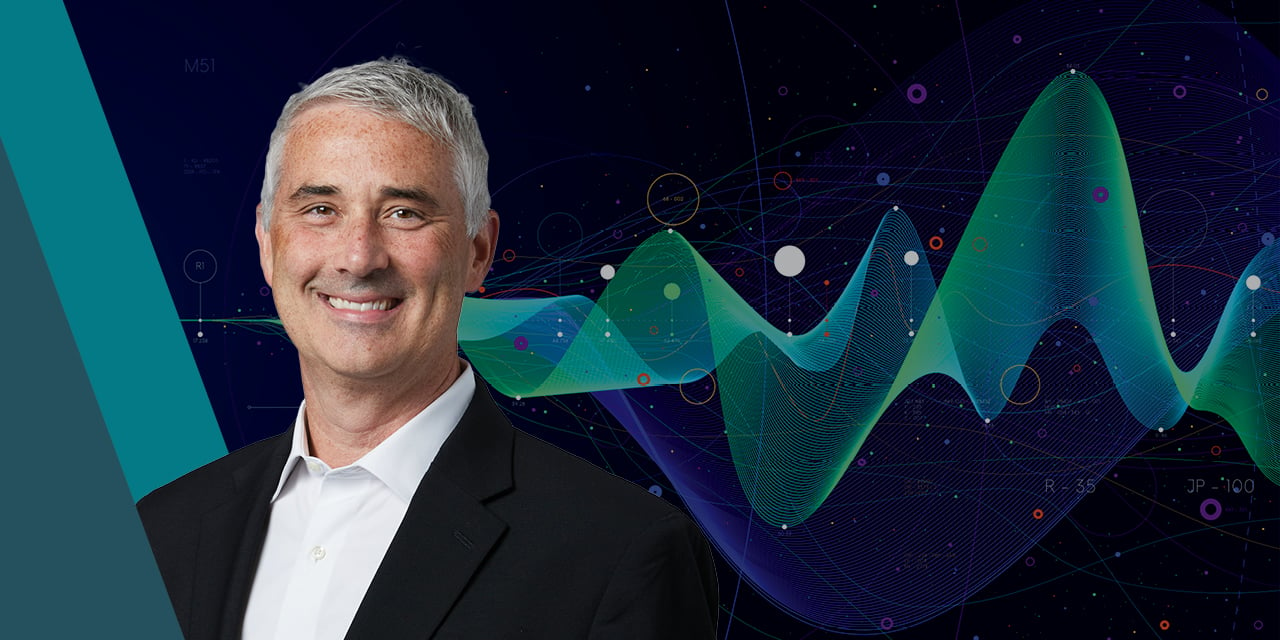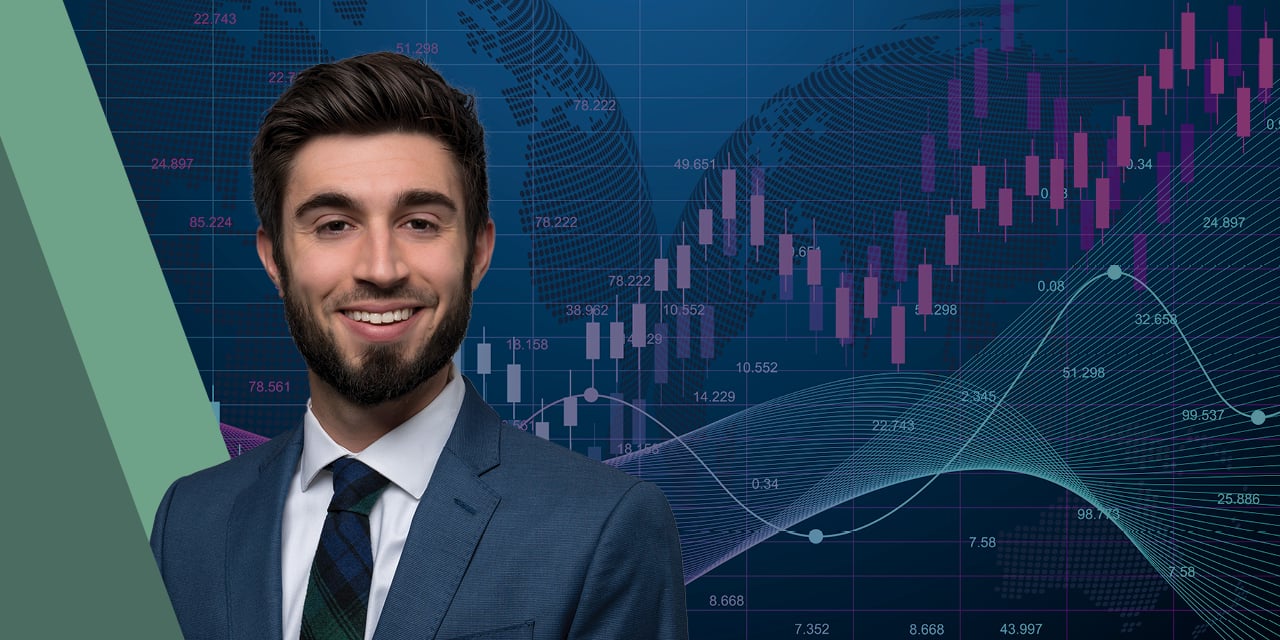
All That Matters: An Investing Dinner
Getting in the holiday spirit, Mike and Ross set the table for a different kind of Thanksgiving feast – one where the guests are fear, greed, FOMO, anxiety, and patience. In this episode of All That Matters, they explore how these emotions impact your decision making as an investor and why patience might just be the most important guest of all.
Fear
Mike: Welcome to All That Matters. It’s November 2025, and the year is winding down. The stock market has delivered double-digit returns, the economy is slowing but holding steady, and big companies have reported solid earnings. With the holidays approaching, we thought it’d be fun to do a Thanksgiving-themed episode inspired by my recent blog, “Inside Out,” which explores investor emotions – much like the Pixar movie. Today, we’ll talk about those emotions as if they’re guests at Thanksgiving dinner. If you recognize any of these in yourself, talk to your Baird Financial Advisor team – we’re here to help.
Let’s start with fear. Fear is stuck in the bathroom, refusing to join the table because the news said turkey gives you nightmares. Fear is an emotion that dominates investors’ minds, even when the market is near all-time highs.
Ross: Fear shows up during those rare, gut-punch market drops when the future feels uncertain. For example, in April 2025, we saw one of the worst short-term sell-offs in 150 years, which left many investors fearful about how to move forward and the impact on their portfolio. Successful investors know how to compartmentalize fear and avoid selling during panics, because they know that interrupting compounding wealth can derail their plan more than the initial selloff. Even though these panics don’t happen often, learning how to manage your fear is crucial.
Greed
Mike: Right now, with the market near all-time highs, there’s probably less fear and more of another emotion – greed. Greed is at the table, wanting more food and wine despite having a full stomach. With the market and housing prices up, greed can be insidious, making us reach for things we don’t need. And it’s not just about money – it can make you feel like you don’t have enough of other things, too.
Ross: Just as selling in a bear market due to fear can hurt your plan, overextending in a bull market due to greed can be just as damaging. Charlie Munger, former vice chairman of Berkshire Hathaway and longtime business partner of Warren Buffet, put it perfectly: “It’s not the bad ideas that do you in, it’s the good ideas…But where there is a good idea with a core of essential and important truth, you can’t ignore it. And then it’s so easy to overdo it.” That’s greed – taking a good idea and overdoing it.
Mike: Ask yourself: Do I need more, or do I have enough? It’s a rhythm, not an either/or. Make sure greed doesn’t overwhelm you. Remind yourself: I have my family, my friends, my purpose – I have what I need. And every now and then, it’s okay to want a little more, but keep it in balance. Work with your Baird Financial Advisor team to manage your expectations and not let greed derail your plan.
FOMO
Mike: Next is FOMO – fear of missing out. FOMO wants to be at another dinner, never satisfied and always looking for something better. For investors, FOMO often manifests in questions like: “Should I buy this stock? Should I join that club? Should I read this newsletter?” The truth is what works for someone else isn’t guaranteed to work for you. Stick to your own plan and play your own game – don’t waste energy paying attention to what others are doing.
Ross: FOMO is one of the toughest emotions to manage and can quickly get you off track. I’ve been reading a lot about bubbles lately as we continue to ask ourselves if we’re in one. Even Isaac Newton, the founder of modern physics and arguably one of the smartest people ever, fell victim to FOMO during the South Sea bubble. After making an initial profit, he jumped back in to keep up with friends and ultimately lost the equivalent of what would be about $3 million today. And that was without social media, which is now one of the largest drivers of FOMO today.
Mike: Remind yourself: You don’t need to be in everything. You don’t always need to collect art, stock up on wine, or dive into crypto. You can reach your goals without chasing every trend or opportunity. FOMO tricks you into thinking you’re missing only good opportunities, but often you’re avoiding plenty of bad ones.
Anxiety
Mike: Now, anxiety. Anxiety had ten cups of coffee before dinner and heard something might be wrong with the gravy. It’s always thinking about the worst-case scenarios, living in the unknowable future, and fueled by negative news and social media.
Ross: Studies show the news is getting more negative, competing for our attention by leaning into negative emotions. With the market at all-time highs, there’s less gut-wrenching fear, but instead a persistent anxiety about the national debt, the dollar, geopolitics, AI, bubbles, and everything else that could potentially derail the market. These anxieties build on each other and can be hard to shake.
Mike: We know anxiety is something you may deal with daily, whether about your career, life, or the markets. It’s tough to overcome but know you have people in your corner – your Baird Financial Advisor team, and us – to help you navigate particularly anxious moments.
Patience
Mike: Finally, patience. Patience sits at the table, knowing a great Thanksgiving dinner takes time to prepare. It’s not focused on the details of the meal but instead enjoying the quality company and conversation. Patience is the emotion that can mitigate all the others.
Ross: Patience is the best skill an investor can have. Day-to-day market moves are unpredictable, but over longer periods, the odds of positive returns increase dramatically. Patience helps you weather temporary anxieties and challenges, and above all, it’s the emotion that creates wealth more than anything else.
Mike: While past performance isn’t a guarantee of future performance, patience has rewarded investors more than any other emotion. As problems arise – whether it’s a global pandemic, a catastrophic event, or a selloff – incentives to solve those problems arise as well, and eventually, they’re overcome. That’s what people do – we solve problems. So as 2025 ends, practice patience. We’ll be back in December to wrap up the year and discuss what went right, what went wrong, and what we’re looking forward to in the year to come.
This information has been developed by a member of Baird Wealth Solutions Group, a team of wealth management specialists who provide support to Baird Financial Advisor teams. The information offered is provided to you for informational purposes only. Robert W. Baird & Co. Incorporated is not a legal or tax services provider and you are strongly encouraged to seek the advice of the appropriate professional advisors before taking any action. The information reflected on this page are Baird expert opinions today and are subject to change. The information provided here has not taken into consideration the investment goals or needs of any specific investor and investors should not make any investment decisions based solely on this information. Past performance is not a guarantee of future results. All investments have some level of risk, and investors have different time horizons, goals and risk tolerances, so speak to your Baird Financial Advisor before taking action.

